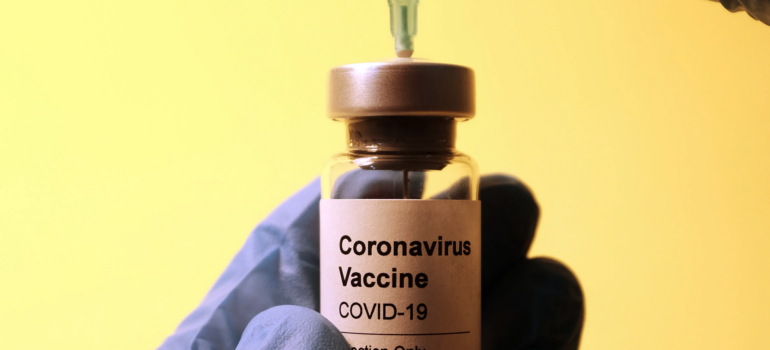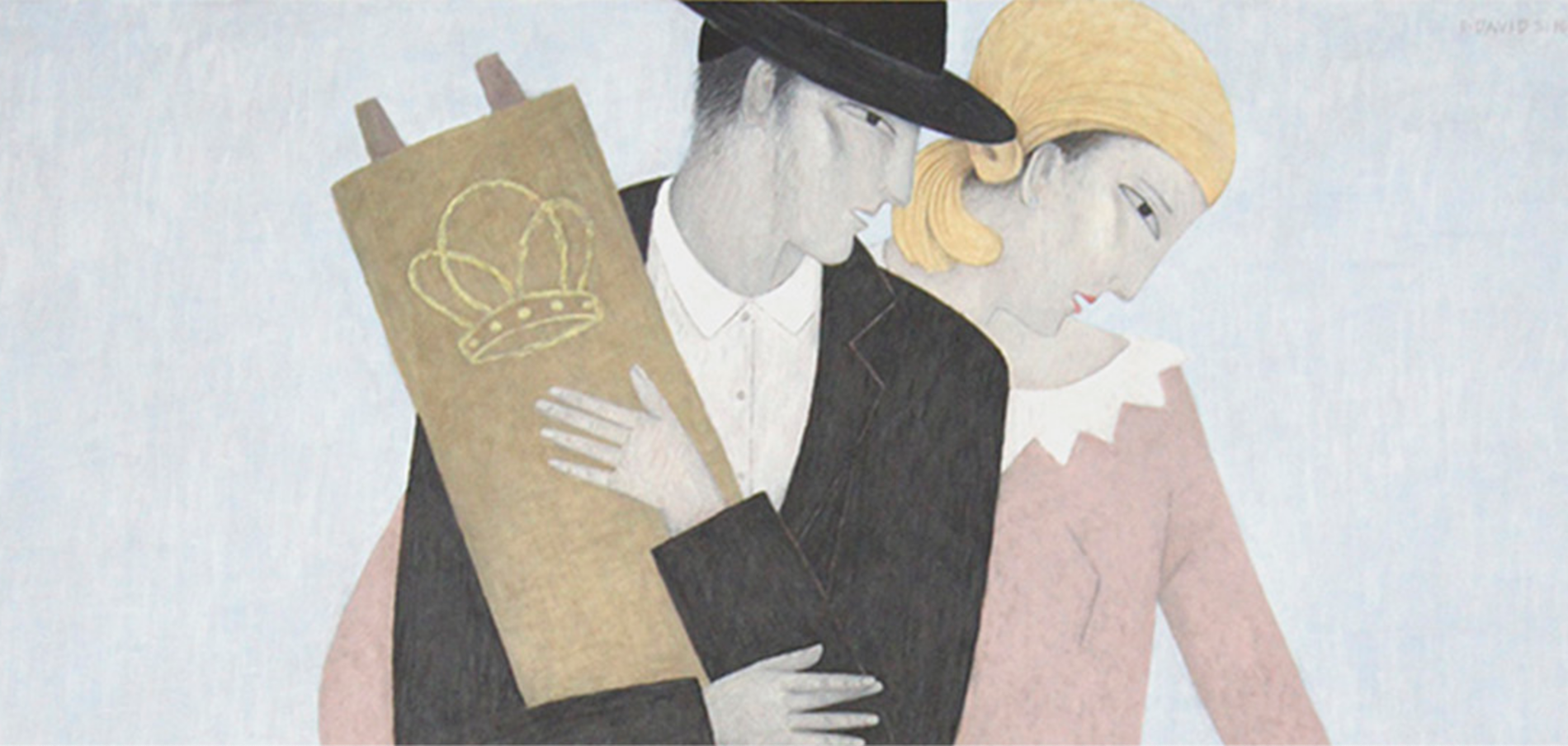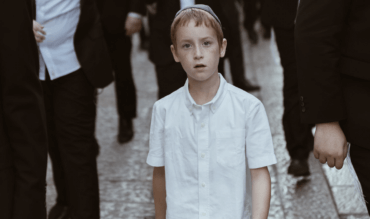
Should I Say a Blessing on the Covid-19 Vaccine?
Dear JITC-
I never said a blessing on another vaccine. Why are people saying one now?
Thanks,
Rochie
Dear Rochie-
Thanks for your question. Before we discuss the possibility of reciting a bracha upon receiving the vaccination for COVID-19, I’d like to address some principles of brachos generally.
The fact that we recite brachos is one of the seven “rabbinic mitzvos,” i.e., things that our Sages instituted with a force comparable to Torah law. Other things that fall in this category include lighting Shabbos candles, washing netilas yadayim before eating bread, Chanukah and Purim, et al. The reason our Sages instituted reciting brachos was for us to praise and to thank God for all the good things that He has given us. We not only recite brachos over food and drink, we also do so before performing many mitzvos and upon witnessing many of God’s glorious works. But there are limitations.
Given the large number of brachos that we recite, it may surprise many that Jewish law actually takes a minimalist approach to reciting brachos. The general principle is “safeik brachos l’hakeil” – we are lenient in a case of doubt involving brachos. For example, if one is in doubt as to whether he already made a bracha, he would not recite the bracha (potentially for a second time) because of the uncertainty. The reason for this is to avoid reciting God’s Name unnecessarily in the form of a bracha levatala (a bracha recited in vain) or a bracha she’eina tzricha (an unnecessary bracha).
It should be mentioned that two brachos are actually of Biblical rather than rabbinic origin – birkas hamazon (“bentching” or “grace after meals”) and birkas haTorah (the blessing on Torah study – see Talmud Brachos 21a). As such, the rules are actually more stringent in those situations, though the details are beyond our scope for today.
Apropos of nothing, I’d like to discuss the bracha of “baruch shepatrani,” simply because it’s an interesting case. Baruch shepatrani is the bracha recited by a parent when his child reaches the age of majority. In it, the parent thanks God for releasing him from spiritual accountability for the child’s actions. Some people recite this blessing in the usual format, with what’s called “Shem and Malchus,” i.e., mentioning God’s Name and His Kingship (“Blessed are You, Hashem our God, King of the universe…”). Many others – I daresay most – recite this bracha without Shem and Malchus, simply saying, “Blessed is the One Who….”
The reason for this discrepancy is the source of the bracha. Most brachos are codified in the Talmud; baruch shepatrani isn’t. Rather, it can be found in the Midrash – which was also composed by our Sages, but which is a different work. The result is that some authorities favor reciting baruch shepatrani one way, while others favor reciting it the other way. Rather than leaping straight for, “Here’s an opportunity to recite a bracha,” the authorities weigh the evidence and then advise on the propriety of reciting a standard-text bracha. As noted, the more common practice would appear to be reciting this particular bracha without mentioning God’s Name and Kingship.
Which brings us to the question of reciting a bracha upon receiving the COVID-19 vaccination.
You say that you never said a bracha on another vaccine so you ask why people are reciting one now. Surely you have noticed that the global COVID-19 pandemic is substantively different from the typical seasonal flu. It’s unparalleled in human memory. It has caused widespread death, hospitalizations, economic upheaval, a disruption in education and religious life, and much more. This is truly the unprecedented circumstance of our times, with the result that it may call for some unprecedented reactions. Reciting a bracha upon being vaccinated may or may not be one of them.
The top two contenders for a COVID vaccine bracha are shehechiyanu (that God has sustained us to reach a particular occasion) and haTov v’haMeitiv (that God is good and does good). These two blessings are substantively the same with one important difference. One recites shehechiyanu when something good befalls him personally, such as a major purchase. HaTov v’haMeitiv, on the other hand, is recited when something benefits both oneself and others.
Now it might be a “no-brainer” that receiving the COVID vaccine is good for one, or even good for oneself and others, but that doesn’t necessarily mean that one should recite a bracha upon receiving it. When the Sages gave the parameters on which one would recite shehechiyanu – such as on a new fruit or upon acquiring furniture – one might ask whether they were being more exhaustive or illustrative. I, personally, suspect that the list is intended as exhaustive rather than illustrative. If such is the case, then one should not recite shehechiyanu on occasions not prescribed by the Sages regardless of how much merit the circumstances might seem to have.
I’m not ruling in this matter, though. When you go to get your COVID vaccine, if you feel that the occasion warrants a bracha, you should consult with your own rabbi for direction. Even if he feels that reciting a standard-text bracha would be inappropriate, other options remain available. One of these would be to recite the bracha without Shem and Malchus as in the aforementioned case of baruch shepatrani (and as we say “Baruch Dayan Ha’Emes” without Shem and Malchus upon hearing of a death outside of one’s own family). Or, advice I received in a different context from Rav Moshe Feinstein ztz”l, if you feel that a day warrants special praises to Hashem, recite Tehillim of praise!
There are many ways that we can show our gratitude to Hashem, from throwing a festive meal (without breaking social distancing parameters!) to giving charitable donations. Regardless of your rabbi’s ultimate opinion on the propriety of reciting a bracha, everyone should get a COVID shot when the option becomes available to them and it would be appropriate to demonstrate our gratitude to Hashem in some fashion, be that what it may.
Sincerely,
Rabbi Jack Abramowitz
Educational Correspondent
Follow Ask Rabbi Jack on YouTube
If you found this content meaningful and want to help further our mission through our Keter, Makom, and Tikun branches, please consider becoming a Change Maker today.







